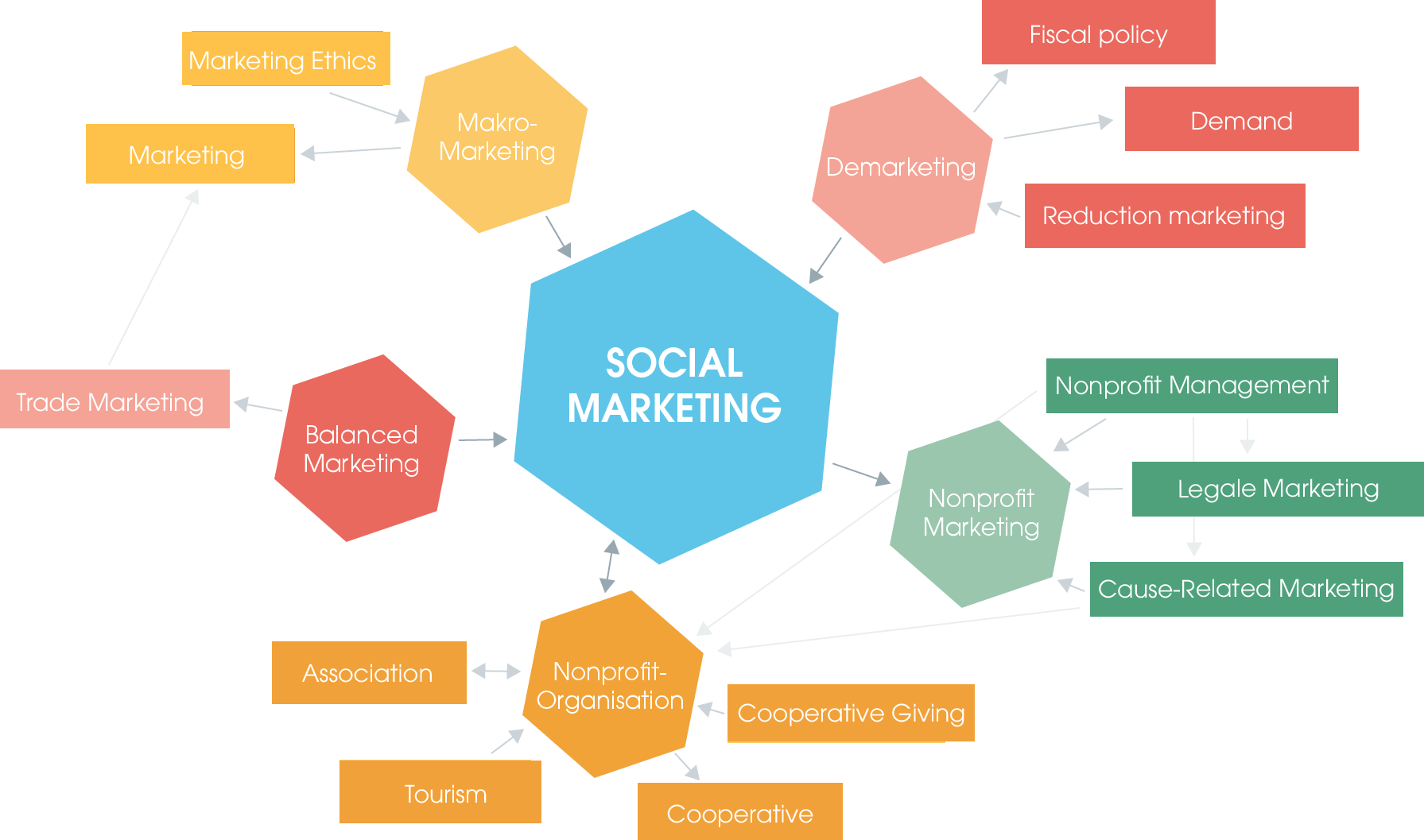The search intent of each individual user plays an important role for Google. Find out here, what search intent is all about! ... Continue reading


Social marketing is the use of marketing techniques to obtain improvements in the personal and social environment. Thus, marketing is intended to have an impact on an individual and subsequently on society as a whole. Thus, it is not material goods that are marketed, but behaviors. The goal is to control a target group in such a way that it accepts, rejects, abandons or changes a behavior. However, the customer should not be manipulated in any way, but positively influenced and encouraged to think differently and better. This in turn can be done for their own good, for the good of another or for the good of an entire society. A well-known example is the negative marketing of tobacco and alcohol consumption.
Of course, social marketing is also part of the marketing mix. A distinction must be made between the four classic categories of product, price, place and promotion. Unlike conventional marketing strategies, the 4 P’s are clearly aligned with social goals.

In contrast to consumer goods marketing, social marketing is based on a corporate philosophy that emphasizes social commitment. It is thus a somewhat different marketing strategy, mostly used by non-profit, governmental or charitable organizations. These try to spread messages to their target audience. It is a systematic persuasion to voluntary action in which normal factors such as price do not play a role.

The core topic of social marketing is the change of consciousness. Persons should thus be stimulated to a “better” way of thinking, more oriented towards the common good. For this, there are three sectors on which the main focus lies:

In the “smoking” example, “non-smoking” is considered to be the product. This means that the company wants to stop a wide mass of people from smoking. The basic idea here is a long-term reduction of health risks, so in this case, health insurance companies, for example, could be the companies that have a special interest in the social marketing of “non-smoking”. It also serves the common good, as society in general, and not just the individual smoker, becomes healthier. As a result, the cost of illnesses paid for by health insurance is reduced. Due to the decrease in diseases, the contribution rate of the health insurance companies can in turn drop. Thus, the company achieves through the message the increase of the well-being of an individual (the smoker himself), others (e.g. his children or his partner) and last but not least the whole society.
All well and good – in theory, this all sounds very simple. In practice, however, it’s a different story: Messages that are supposed to encourage the target group to rethink are often difficult to get across. One person feels “put on the spot”, another resigns completely, and the last thinks it doesn’t affect him. Social marketing for the masses is thus a complex challenge. Nevertheless, companies are gradually succeeding in achieving enormous success through various marketing campaigns.
Not only non-profit companies or governmental and non-profit organizations market themselves with social marketing. Commercial companies are also increasingly using these measures. They are focusing more and more on social commitment and social aspects, such as fair trade, animal welfare or environmental friendliness. However, social marketing in the true sense can no longer be assumed to be 100%, since the primary goal of the companies is often an image improvement, an increase in brand awareness or pure brand management. Thus, the focus is not on changing the attitude of the target group, but once again on marketing the company. Nevertheless, it pays off. Even if no commercial products are advertised via social marketing, measures in this direction can increase a company’s sales.
But beware: Currently, sustainable and environmentally friendly and resource-saving productions are central topics for companies. Especially in times of Fridays for Future, such aspects are increasingly influencing purchasing decisions. Nevertheless: Sustainability marketing is not social marketing. As already explained, in social marketing it is important to change the behavior of people for the benefit of the public. Thus, marketing “green” or “charitable” products is not one of them, as these are marketing purposes to make the product appear more attractive and thus increase sales.
In social marketing, achieving social goals should always come first. Here, the classic factors such as increasing profits and sales are completely excluded and focused on correcting grievances and the behavior of others. Since the consciousness of the customers should be influenced, consequently the future purchase decisions will change. However, with the help of social marketing you can also pursue other goals that are more commercially oriented:
In addition, the attention can be directed specifically to the company’s core topics. This helps, for example, with fundraising campaigns.
Olga Fedukov completed her studies in Media Management at the University of Applied Sciences Würzburg. In eology's marketing team, she is responsible for the comprehensive promotion of the agency across various channels. Furthermore, she takes charge of planning and coordinating the content section on the website as well as eology's webinars.
You want to learn more about exciting topics?
